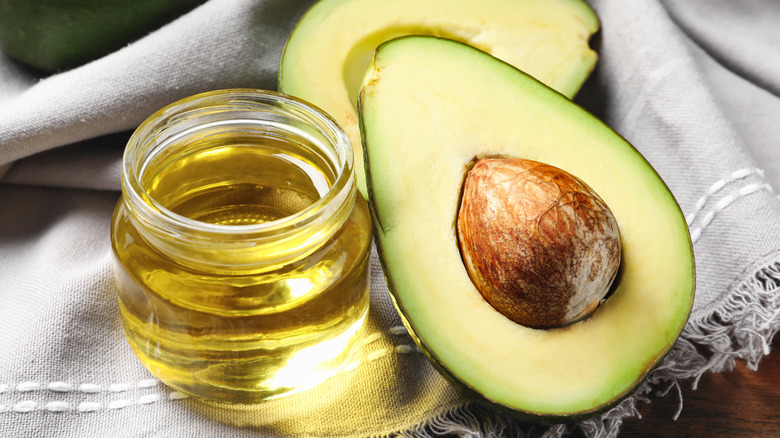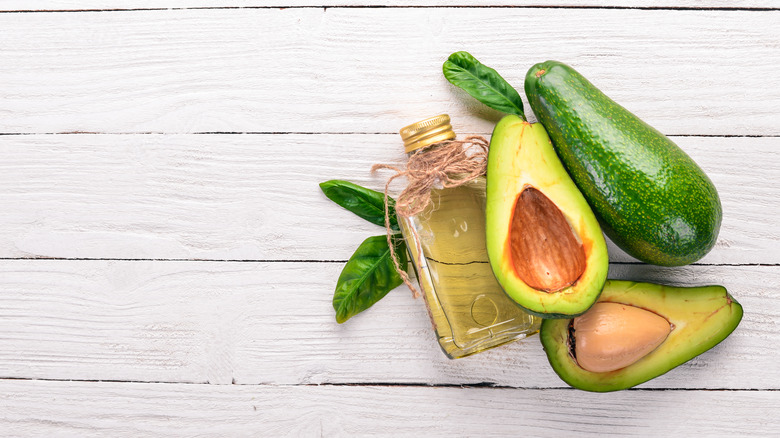The Unique Way Avocado Oil Is Produced
With the seemingly endless number of options crowding the shelves of cooking oil at the grocery store, it can be hard to know which oil is best for your cooking needs. Though avocado oil is a relative newcomer compared to more ancient options like olive oil, that doesn't mean it should be overlooked.
One of the best things about avocado oil is its many health benefits. Farmer's Almanac reports that avocado oil has been linked to improved skin and hair, as well as lower cholesterol and blood pressure. As for its culinary uses, avocado oil's high smoke point makes it a great option for frying and sautéing.
Despite these benefits, and the long history of avocado production, using the fruit's oil for cooking is a fairly new idea. According to History Cooperative, while over time many people conjectured on the possibility of using avocados to produce cooking oil, it wasn't until the 1990s that some culinary pioneers in New Zealand invented the unique method used to create avocado oil.
Avocado oil comes from the fruit's flesh
The unique method used to make avocado oil was actually based on the same methods for making olive oil, per History Cooperative. This method is referred to as cold pressing because the flesh of the avocado is pressed by a powerful machine without additional heat or chemical additives. (If purchasing avocado oil made without chemicals is important to you, it's worth noting any labeled "refined" will be made with chemicals, according to Ava Jane's Kitchen, which allows oil producers to make use of less desirable fruits.) As California Avocado notes, the skin and pit of the avocado have already been removed, and this press creates a batch of mashed avocados that is run through a centrifuge. This machine separates the avocado's flesh, oil, and water. The dark green oil is then bottled and makes its way to your local grocery store.
This process is unique from other cooking oils because it uses the flesh of the fruit rather than the nuts or seeds. For example, The Cookful points out that grapeseed oil is actually a byproduct of wine production. The oil is produced by taking the seeds that are filtered out during winemaking and turning them into a cooking oil. Fine Cooking says that walnut oil is made using the walnuts themselves, and How It's Made says that the same goes for canola oil, which is derived from the plant's seeds.
So, while avocado might be known for its impressive interior pit, it's actually the flesh of it that is used to make a delicious and nutritious cooking oil.

